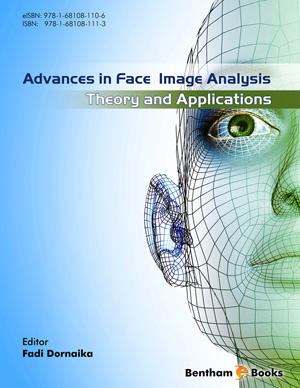Abstract
Local Discriminant Embedding (LDE) was recently proposed to overcome some limitations of the global Linear Discriminant Analysis (LDA) method. Whenever a small training data set is used, LDE cannot directly be applied to high-dimensional data. This case is the so-called small-sample-size (SSS) problem. The classic solution to this problem was applying dimensionality reduction on the raw data (e.g., using Principal Component Analysis (PCA)). This chapter introduces a novel discriminant technique called “Exponential Local Discriminant Embedding” (ELDE). The proposed ELDE can be seen as an extension of LDE framework in two directions. Firstly, the proposed framework overcomes the SSS problem without discarding the discriminant information that was contained in the null space of the locality preserving scatter matrices associated with LDE. Secondly, the proposed ELDE is equivalent to transforming original data into a new space by distance diffusion mapping (similar to Kernel-based non-linear mapping), and then, LDE is applied in such a new space. As a result of diffusion mapping, the margin between samples belonging to different classes is enlarged, which is helpful in improving classification accuracy. The experiments are conducted on four public face databases, Extended Yale, PF01, PIE and FERET. The results show that the performances of the proposed ELDE are better than those of LDE and many state-of-the-art discriminant analysis techniques.
Keywords: Complete Kernel Fisher discriminant method, Distance diffusion mapping, Distance metric learning, Exponential discriminant analysis, Exponential locality preserving projections, Face recognition, Feature extraction, Generalized eigenvectors, Intrinsic graph, Kernel Fisher discriminant analysis, Kernel Principal component analysis, Linear discriminant analysis, Local discriminant embedding, Matrix exponential, Penalty graph, Principal component analysis, Regularization, Regularized Kernel discriminant analysis, Singular matrix, Small sample size problem.


















